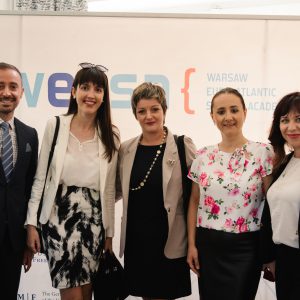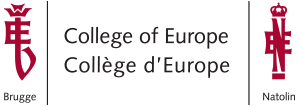
WEASA 2020
Public speech, private platforms
WEASA 2020 timetable:
Our 2020 summer academy timetable is now available here! (pdf)
Covid-19 update:
After much consideration, we have made the difficult choice to move all of our WEASA 2020 sessions to a remote format. We have already contacted everybody who applied to inform them of this news.
We plan to split WEASA 2020 into three modules:
- Pre-core – those will include introductory readings, networking, and an opening lecture
- Core – this will include five intensive modules, consisting of lectures and workshops, conducted over five days from July 6th to July 10th, 2020
- Post-core – this will include regular talks and networking sessions for all selected participants
Our WEASA staff has been hard at work, studying online learning and facilitation methodologies, as to make sure that our programme can still meet the high standards we set ourselves every year.
Some of the sessions will be open to selected WEASA 2020 participants, others – to all. We will post information about them both on weasa.org and our social media channels.
Programme and topics:
The digital transatlantic rift – this section will look at how the EU and US approach big tech regulation, where they agree and where they differ. It will also investigate how this debate affects the fight against disinformation in the Eastern Partnership and the Western Balkans.
Election security – WEASA 2020 will dedicate a whole-day session specifically to election security. This includes a look at the steps that the US, EU, and other governments are taking to ensure the security and integrity of elections and what tradeoffs greater election security might require.
Online radicalisation and algorithms – the algorithms used by big tech platforms are far from politically neutral. They can, in fact, be exploited by hostile actors and used to spread radicalising messages or disinformation. This session will look at the current state of algorithmic radicalisation and disinformation, how it’s tied to big tech business models, and what we can do about it.
Content moderation – all online platforms need to decide whether or not to remove or downrank undesirable or offensive content. Still, the criteria they use to make this decision can often seem arbitrary. This session will look at what types of content are removed and what stays up online, and how big tech firms face an uncomfortable paradox in that they host public speech on private infrastructure.
Digital forensics/ OSINT – this session will teach participants how to investigate crime, military movements, and corruption by using open data, such as satellite imagery, social media feeds, and publicly available databases.
Digital security – this training will teach participants what steps they can take to secure their own data and communications from hostile actors. It will include modules on encrypted messaging, secure communication practices, and digital hygiene.
Investigative journalism – this session will show participants how investigative journalism functions, what information and sources it relies on, and the storytelling structures it uses. It will consist of both an in depth look at investigative techniques and a wider discussion on the social impact investigative journalism has.
Soft skills workshops – this would include a continuation of the debates, negotiations, data storytelling, and social media workshops that played a prominent part in previous WEASA editions.
Dates and location:
WEASA 2020 will take place in July 2020. Due to restrictions imposed by the COVID-19 pandemic and in the interest of the safety of our participants and staff, we have opted to move the 2020 edition of the academy to a wholly remote format.
Participants and eligibility:
WEASA 2020 is addressed to participants coming from a cross-section of society and specifically from public administration, academia, think-tanks, media and civil society organizations.
We welcome applicants who are citizens and residents of the Eastern Partnership and the Western Balkans. We typically look for mid-career professionals (usually those with at least five years of professional experience), who work as policy analysts, experts, advisers, civil servants, journalists, private sector specialists and in NGOs and are interested in WEASA related topics.
Please note that WEASA 2020 sessions will all be designed with a non-technical audience in mind – you don’t need to be a digital expert in order to sign up!
Are you WEASA 2020 alumni?
Join WEASA community! Once you register, your account will be verified by the WEASA team to confirm your participation. Please sign up with the same name/last name that you used during your participation so we can easily locate you.
Sign in


